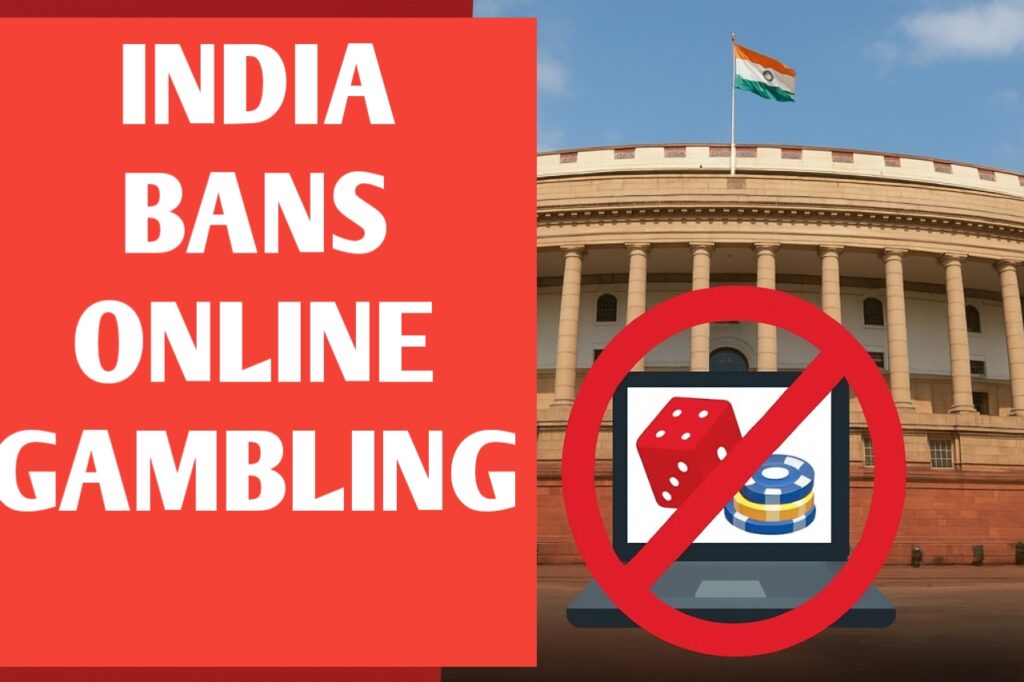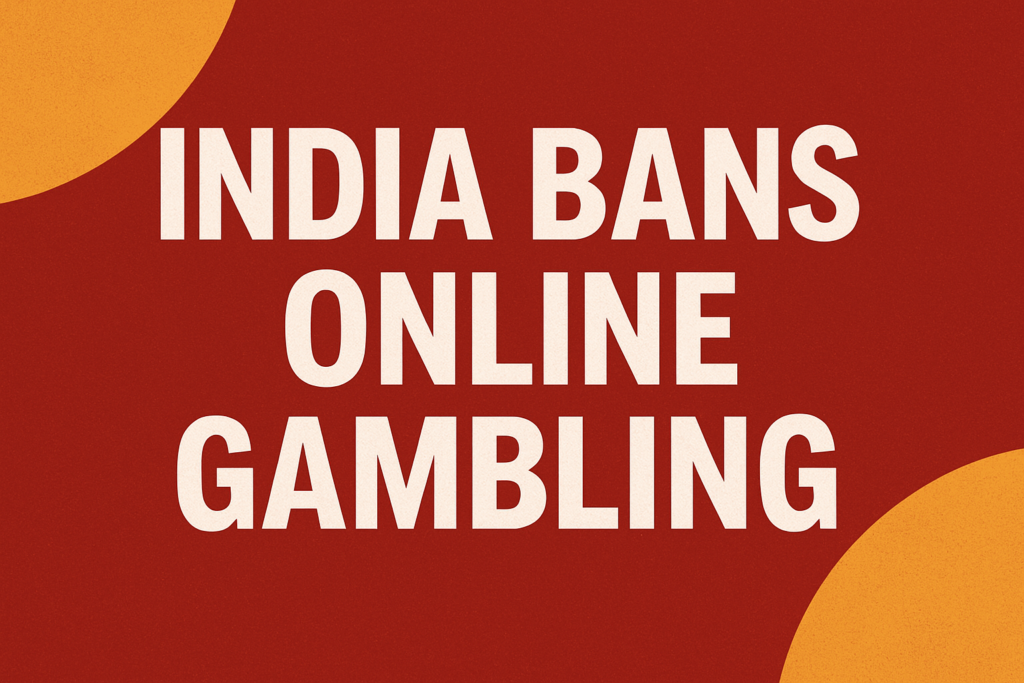India’s Parliament has banned online money gaming under the 2025 Act. Big apps like Dream11, MPL shut operations as strict penalties and new rules kick in.
India’s Parliament Cracks Down: Online Gambling Banned Nationwide
A Landmark Move in the Digital Age
In a move that startled both the gaming industry and millions of users, India’s Parliament approved the Promotion and Regulation of Online Gaming Act, 2025, which prohibits all types of real-money online gambling. With the President’s approval, the law is now in effect, marking one of the most dramatic interventions in the country’s thriving digital economy.

Why the Ban? The Hidden Cost of Online Gaming
Billions Lost, Millions Hooked
Government reports revealed that nearly 450 million Indians were engaged in money-based gaming, bleeding an estimated ₹2.3 billion every year. For lawmakers, the numbers were alarming—but the human stories were worse: families falling into debt, lives ruined by addiction, and cases of fraud multiplying.
Union IT Minister Ashwini Vaishnaw summed up the urgency with a stinging comparison:
“Online money gaming has become a bigger issue than drugs.”
What the Law Says
Strict Penalties for Violators
The law does not tiptoe—it swings hard. Anyone caught offering, promoting, or even financing online gambling faces up to five years in prison. This isn’t just about players; platforms and promoters are equally in the crosshairs.
Not Everything Is Banned
The Act draws a careful line. While gambling and fantasy betting are prohibited, other activities like as e-sports, instructional games, and research-based platforms are encouraged. To regulate this new terrain, the government established the National Online Gaming Commission (NOGC), which is in charge of licensing, monitoring, and consumer protection.
Direct Effect on the Sector
Big Players Forced to Retreat
Within hours of the law’s passage, gaming giants like Dream11, MPL, PokerBaazi, and Zupee suspended their money-based games. For companies once valued in billions, the shock was brutal.
Stocks reflected the panic: Nazara Tech shares fell by 11% in a single day, while investors—many of them global heavyweights like Tiger Global—watched billions in potential value evaporate.
Survival Mode: Free Games Take Over
Some companies are trying to adapt. Zupee, for instance, will keep offering free-to-play games like Ludo and Snakes & Ladders, but its cash-based contests are gone.
Industry vs. Government
Calls for Regulation, Not a Ban
Gaming firms had long pleaded for a regulatory framework instead of prohibition. Their warning was simple: bans drive players underground, boosting black-market operators.
But for lawmakers, the social cost outweighed economic arguments. Addiction, crime, and financial ruin made prohibition look not only logical but necessary.
Legal Battles Ahead
The story isn’t over. Numerous businesses have already petitioned the Supreme Court, claiming that the statute unjustly combines games of chance with “skill-based games” like poker. In the upcoming months, these difficulties may influence how the prohibition is implemented.
A Social Turning Point

More Than Just a Policy Shift
This choice has more to do with India’s desired digital culture than it does with gaming apps. Growing understanding that technology can lead to social problems if left unchecked is reflected in the legislation.
Public voices echo this sentiment.
“In my opinion, the government has taken a very good decision. Yes, it may have come late, but better late than never. This online gambling disease had spread deep into villages across India. Big celebrities were endorsing it, and I personally know people whose lives were ruined because of these platforms. Many others lost their hard-earned money too. Such gaming platforms should all be shut down, just like eradicating a dangerous infection.”
Another parent shared their relief:
“My son had started spending more time on gaming apps than on his studies. We lost thousands of rupees before we even realized how bad it was. This ban gives families like ours a fresh start.”
A college student expressed frustration but also acceptance:
“Yes, I used to play fantasy cricket for money. It was exciting, but also addictive. I ended up losing more than I ever won. Maybe this ban is what we all needed to stop.”
And from a rural perspective:
“In my village, people were taking loans just to play on these apps. When they lost, the burden fell on the whole family. Finally, the government has acted. It may save many households from financial ruin.”
Yes, the ban disrupts an industry worth billions. Yes, it risks jobs and investment. But it also tackles an addiction that was draining households and destabilizing communities.
Final Word
The Promotion and Regulation of Online Gaming Act, 2025 is both sweeping and controversial. It pulls the plug on a massive industry while creating a framework for responsible, licensed gaming. For the time being, Parliament’s message is clear: India prioritizes social welfare over speculative financial gain.
Whether the courts, businesses, and players will embrace this reality or attempt to change it is still up in the air.
